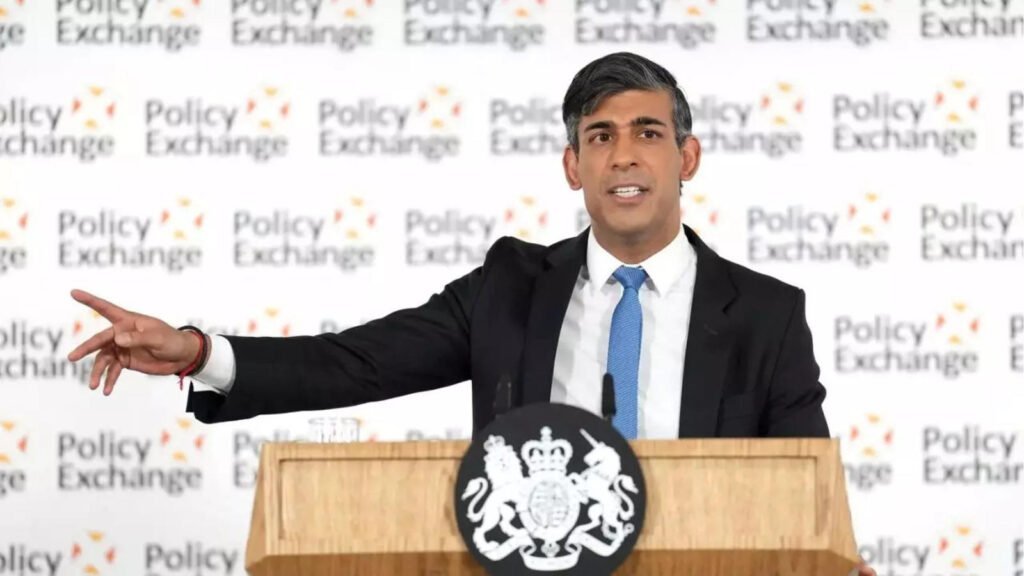UK Prime Minister Rishi Sunak recently faced a strong backlash over his proposal to restrict the Graduate Route visa, a crucial scheme for international students, especially from India. This visa allows graduates to stay and work in the UK for up to two years post-study. The plan aimed to limit these visas to only the “best and the brightest” to curb migration. However, significant opposition from cabinet members, universities, and businesses led to the abandonment of this proposal. This blog will delve into the details of the Graduate Route visa, the proposed changes, and the reasons behind the decision to drop the plan.
Understanding the Graduate Route Visa
The Graduate Route visa, introduced in July 2021, allows international students to remain in the UK for up to two years after completing their degree, or three years for PhD graduates. This visa provides a valuable opportunity for graduates to gain work experience in the UK without needing a job offer or employer sponsorship, making it highly attractive for those seeking to build their careers post-study.
What is the Graduate Route Visa?
This visa scheme offers international graduates the flexibility to explore various career opportunities in the UK. It aims to attract global talent and contribute to the UK’s economy and research landscape by allowing graduates to stay and work without immediate employment constraints.
Popularity Among Indian Students
Indian students are the largest group benefiting from the Graduate Route visa, accounting for over 40% of all visas issued under this scheme. The visa’s appeal lies in its ability to provide a clear pathway to international work experience, enhancing career prospects and making the UK a preferred destination for higher education. This influx of international students significantly supports UK universities financially and bolsters their research capabilities.
The Proposed Changes and Their Implications
UK Prime Minister Rishi Sunak proposed changes to the Graduate Route visa to restrict it to only the “best and the brightest” students. This plan aimed to reduce migration numbers ahead of the January 2025 general election. The proposal included stricter eligibility criteria and targeted recruitment agents accused of misleading students about their prospects in the UK.
Initial Plans by PM Rishi Sunak
Sunak’s plan sought to limit the Graduate Route visa to top-tier graduates. The measures aimed to curb the number of international students by cracking down on recruitment agents who allegedly provided misleading information.
Potential Impact on International Students
The proposed restrictions would have significantly impacted international students, especially those from India, who are the largest beneficiaries of this visa. By limiting eligibility, the number of international students could have decreased, affecting the financial health and diversity of UK universities.
Financially, UK universities depend on international students’ tuition fees. A reduction in international student numbers could have worsened financial difficulties for these institutions, limiting their ability to fund research and academic activities.
Backlash and Opposition
The proposed changes to the Graduate Route visa faced significant backlash from various stakeholders. Key cabinet members, such as Chancellor Jeremy Hunt and Education Secretary Gillian Keegan, opposed the plan, arguing it would harm the UK’s higher education sector by deterring international students and reducing the diversity and talent in British universities.
Cabinet Revolt
Senior ministers, including Hunt and Keegan, led the opposition against Sunak’s proposal. They emphasized that restricting the Graduate Route visa would negatively impact the UK’s attractiveness to international students, ultimately affecting UK universities’ financial stability and global competitiveness.
Reaction from Universities and Businesses
Universities and business leaders also voiced strong objections. Universities UK called for an end to the uncertainty, stressing that the visa is crucial for attracting international students who contribute significantly to the financial health of UK institutions. Business representatives warned that limiting the post-study offer would make the UK less appealing to overseas students and harm local economies.
The Migration Advisory Committee (MAC) found no significant evidence of abuse in the visa scheme and recommended its continuation, reinforcing the argument that the visa should remain unchanged to maintain the UK’s position as a leading destination for higher education.
The Role of the Migration Advisory Committee (MAC)
The Migration Advisory Committee (MAC) played a key role in evaluating the proposed changes to the Graduate Route visa. Conducting a thorough review, the MAC assessed the visa’s impact and potential for misuse, significantly influencing the decision to retain the current scheme.
Findings of the MAC Review
The MAC found no significant evidence of abuse within the Graduate Route visa scheme. They noted that the visa was effectively used by international students, particularly from India, who formed a large portion of the visa holders. The review emphasized that the visa was crucial for attracting global talent and supporting the financial stability of UK universities.
Recommendations and Impact
The MAC recommended that the Graduate Route visa should remain unchanged. They highlighted its importance in helping UK universities overcome financial challenges and maintain their competitiveness in the global education market. The committee’s findings supported the arguments against the proposed restrictions, reinforcing the need to retain the current visa scheme.
Abandonment of the Plan
UK Prime Minister Rishi Sunak abandoned the proposed changes to the Graduate Route visa due to significant opposition from key stakeholders.
Reasons for Dropping the Proposal
The plan was dropped after backlash from cabinet members, universities, and businesses, who argued that the restrictions would deter international students, especially from India, and harm the UK’s higher education sector. The Migration Advisory Committee (MAC) found no significant evidence of abuse and recommended continuing the visa scheme (India Today) (EdexLive).
Implications for the Future
Maintaining the Graduate Route visa allows the UK to continue attracting global talent, supporting the diversity and financial health of its universities. This decision reflects the need to balance immigration control with the benefits of international education.

